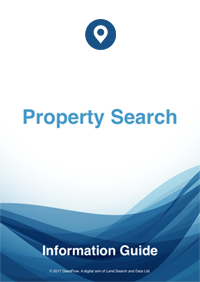Obtain Copy Abstract of Title
Contents
Article Summary
An abstract of title was usually provided to the purchaser where the documents referred to in the abstract were not themselves available, e.g. because the sale was for part of the vendor's land and he required the documents himself in connection with his retained land. In today's registered land procedures there would be no need for abstracts of title. This article explains what an abstract of title is, why you may wish to see it, and how to obtain a copy.
Abstract of Title
Abstracts of Title are summaries of documents forming the chain of ownership comprising a root of title, prepared by a solicitor or clerk working under his supervision. Roots of title were used so as to authenticate ownership for a period of at least 15 years prior to a purchase. The documents comprised in the root consisted of such documents as conveyances, official searches, bankruptcy searches, probates, assents, letters of administration, mortgage deeds and any other documents used to convey title from one person to another. There may be several abstracts of title spanning different periods of time, following a number of purchases.
An abstract is a summary of the above documents, heavily abbreviated, and omitting all but the most important parts of the document. It may be lengthy and may consist of a multitude of documents, often hand-written.
Land Registry
Where a property is registered for the first time the conveyancer dealing with the purchase must establish a good root of title with the Land Registry and will therefore lodge with it the documents forming the root. These documents may include an abstract of title. Where they do, and the Land Registry consider the abstract important enough to retain, they will scan a copy and make a note in the Register that a copy has been made. This is then available for anyone interested, to obtain a copy of.
Property History
One advantage of obtaining a copy abstract of title is the wealth of information it may contain relating to the history of property ownership. Although abstracts are usually prepared to establish a good root of title which shows an unbroken and unfettered link in the chain of ownership for a period of at least 15 years, in practice, it used to be frequently necessary to go back much further in time than this, e.g. because the last evidence of ownership was a conveyance on purchase 50 years ago, there having been no dispositions between.
Pre-Registration Deeds
If you have retained your pre-registration deeds, which may have been handed to you by your conveyancer after the property was registered by him, an abstract of title, if there is one, is likely to be with these documents. It would be quite a large document and easily spotted.
Associated Documents Search
A Associated Documents Search will provide copies of all Deeds, including any abstracts of title, that have been scanned by the Land Registry and held digitally by them. There is a one-off fee of £29.95 for all Deeds held digitally by the Land Registry under one title, however many there are. You can know if an Abstract has been copied by the Land Registry by looking at your Title Register to see if a clause refers to a Deed contained in an Abstract and if there is a note at the end of that clause to say a copy has been made.
Associated Documents
Deeds creating Restrictions, Covenants, Easements, etc. are often kept digitally by the Land Registry and made available for sale due to their invaluable detail and content to assist in further understanding the Restrictions, etc.
£29.95Title Register
The Land Registry Title Register holds data relating to the property ownership, purchase price, mortgage, tenure, covenants, rights of way, leases and class of title.
£19.95Title Plan
The Title Plan shows an outline of the property and its immediate neighbourhood, and uses colours to identify rights of way, general boundaries and land affected by covenants.
£19.95


